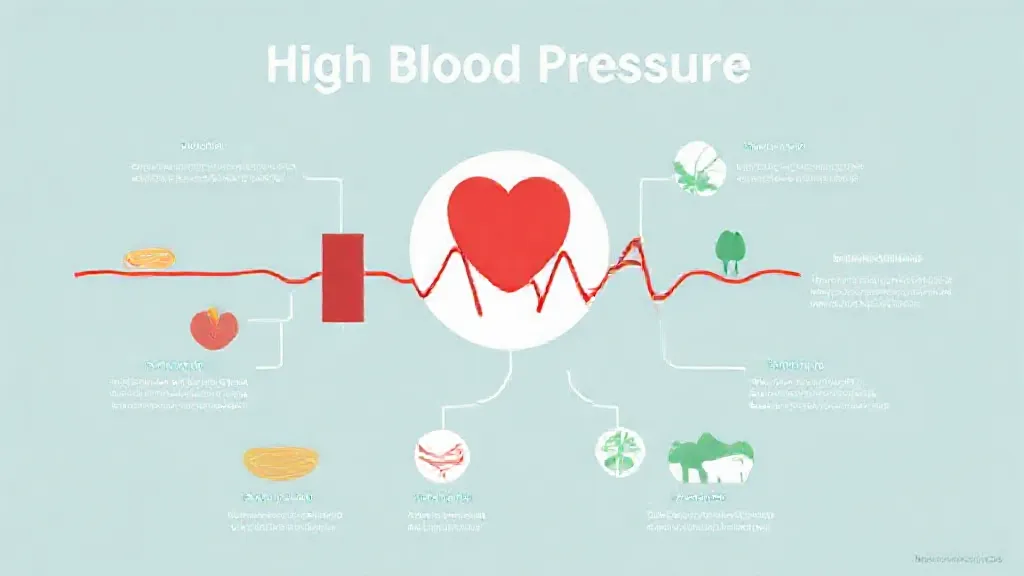High blood pressure, or hypertension, is a condition that affects millions of people worldwide. It is often dubbed the "silent killer" because it typically has no symptoms, yet it can lead to severe health complications, including heart disease, stroke, and kidney failure. Understanding why some individuals develop high blood pressure is crucial for prevention and management.
This article delves into the multifaceted causes of hypertension, including genetic, lifestyle, and environmental factors.
Genetic Predisposition to Hypertension
Genetics play a significant role in the development of high blood pressure. Studies have shown that individuals with a family history of hypertension are more likely to develop the condition themselves.
Specific genes have been identified that influence blood pressure regulation and cardiovascular health. For instance, variations in genes that affect sodium handling by the kidneys can lead to increased blood pressure. Understanding one's family history can be an essential step in assessing risk and taking proactive measures.
Impact of Diet on Blood Pressure Levels
Diet is another critical factor in the development of hypertension. High sodium intake is one of the primary contributors to elevated blood pressure. Processed foods, which often contain excessive salt, can lead to increased blood volume and, consequently, higher blood pressure.
Conversely, diets rich in fruits, vegetables, whole grains, and low-fat dairy products, such as the DASH (Dietary Approaches to Stop Hypertension) diet, have been shown to lower blood pressure. The balance of nutrients, particularly potassium, magnesium, and calcium, also plays a vital role in maintaining healthy blood pressure levels.
Sedentary Lifestyle and Its Consequences
Physical inactivity is a significant risk factor for hypertension.
Regular exercise helps maintain a healthy weight, reduces stress, and promotes better circulation, all of which are beneficial for blood pressure control. Sedentary behaviors, such as prolonged sitting or lack of physical activity, can lead to weight gain and increased blood pressure. The American Heart Association recommends at least 150 minutes of moderate-intensity aerobic exercise per week to help manage blood pressure effectively.
The Role of Stress in Hypertension Development
Chronic stress is another contributing factor to high blood pressure. When individuals experience stress, the body releases hormones like adrenaline and cortisol, which can temporarily increase blood pressure. Over time, persistent stress can lead to unhealthy coping mechanisms, such as poor dietary choices, increased alcohol consumption, or smoking, further exacerbating hypertension.
Learning stress management techniques, such as mindfulness, meditation, or yoga, can be beneficial in controlling blood pressure.
Age and Blood Pressure: Understanding the Connection
Age is an unavoidable risk factor for hypertension. As people age, their blood vessels naturally lose elasticity, and the heart may work harder to pump blood, leading to increased blood pressure.
The prevalence of hypertension tends to rise significantly after the age of 45 in men and 65 in women. Regular monitoring of blood pressure becomes increasingly important as individuals age, enabling early detection and intervention.
Environmental Influences on Hypertension
Environmental factors, including exposure to pollution and socioeconomic status, can also impact blood pressure.
Studies have indicated that individuals living in areas with high levels of air pollution may experience elevated blood pressure due to inflammation and oxidative stress caused by pollutants. Additionally, socioeconomic factors, such as access to healthcare, education, and healthy food options, can influence lifestyle choices and stress levels, contributing to hypertension risk.
The Interplay of Other Medical Conditions
Certain medical conditions can predispose individuals to high blood pressure.
Diabetes, for example, is closely linked with hypertension, as high blood sugar levels can damage blood vessels and increase blood pressure. Other conditions, such as sleep apnea, kidney disease, and hormonal disorders, can also play a role. Managing these underlying health issues is crucial for controlling blood pressure and reducing the risk of complications.
Conclusion: A Holistic Approach to Managing Hypertension
In conclusion, the development of high blood pressure is a complex interplay of genetic, lifestyle, environmental, and medical factors. Understanding these causes can empower individuals to take proactive steps toward prevention and management. Regular monitoring, a healthy diet, physical activity, stress management, and addressing underlying health conditions are essential components of a comprehensive approach to controlling blood pressure.
By making informed choices and seeking medical advice when necessary, individuals can significantly reduce their risk of developing hypertension and its associated complications.
